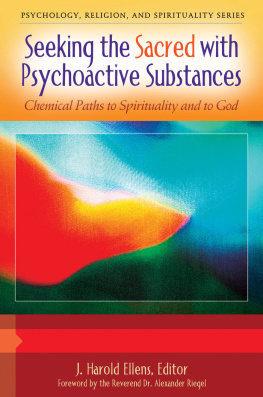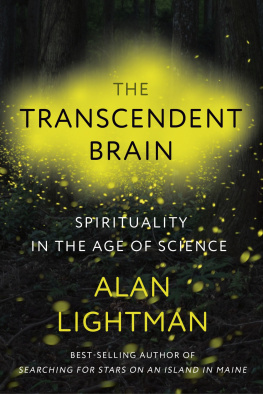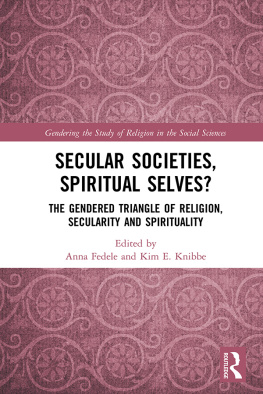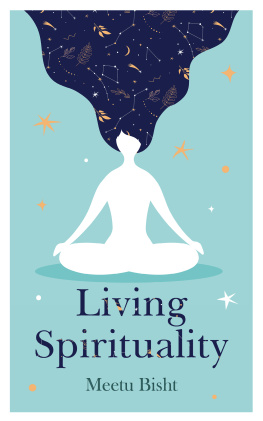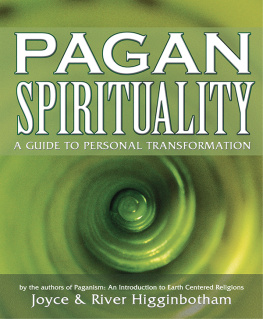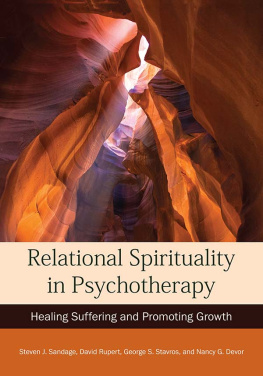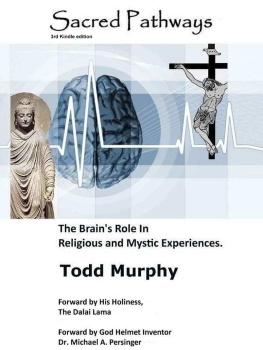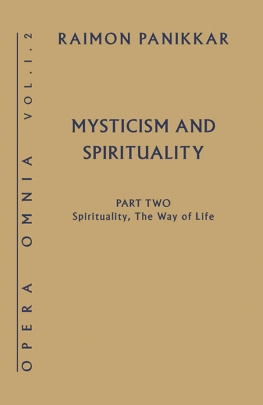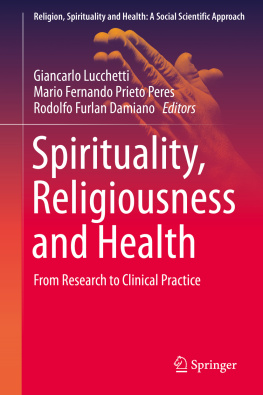
EDITOR
J. Harold Ellens, PhD, is a retired university professor of Philosophy and Psychology, retired Presbyterian theologian and pastor, retired U.S. Army chaplain (colonel), executive director emeritus of the Christian Association for Psychological Studies, and founding editor and editor-in-chief emeritus of the Journal of Psychology and Christianity. Dr. Ellens has published extensively in the interface of psychology and religion/spirituality. His recent publications include The Destructive Power of Religion (4 vols., 2004), Psychology and the Bible (4 vols., with Wayne Rollins, 2004), Gods Word for our World, A Festschrift for Professor Simon John De Vries (2 vols., 2004), Sex in the Bible (2006), Text and Community, A Festschrift Commemorating Professor Bruce M. Metzger (2 vols., 2007), Radical Grace, How Belief in a Benevolent God Benefits our Health (2007), Understanding Religious Experience, What the Bible Says about Spirituality (2007), Miracles: God, Science, and Psychology in the Paranormal (3 vols., 2008), The Spirituality of Sex (2009), Probing the Frontiers of Biblical Studies, A Festschrift in Honor of Professor David J. A. Clines (2009), The Son of Man in The Gospel of John (2010), The Healing Power of Spirituality, How Faith Helps Humans Thrive (3 vols., 2010), Honest Faith for Our Time: Truth Telling about the Bible, the Creed, and the Church (2010), Light from the Other Side, the Paranormal as Friend and Familiar (2010), Explaining Evil (3 vols., 2011), Psychological Hermeneutics of Biblical Themes and Texts, a Festschrift in Honor of Wayne G. Rollins (2012), A Dangerous Report, Challenging Sermons for Advent and Easter (2012), Gods Radical Grace, Challenging Sermons for Ordinary Time(s) (2013), By Grace Alone, Forgiveness for Everyone, for Everything, for Evermore (2013), Heaven, Hell, and Afterlife: Eternity in Judaism, Christianity, and Islam (3 vols., 2013), and Winning Revolutions: The Psychology of Successful Revolts for Freedom, Fairness, and Rights (3 vols., 2013). He has authored, coauthored, or edited 261 published volumes, 181 professional journal articles, and 288 review articles. He is a psychotherapist in private practice.
CONTRIBUTORS
Chris Bennett has been studying the historical role of cannabisparticularly in the realms of religion, spirituality and magicfor over 20 years. He is the author of three books: Green Gold the Tree of Life: Marijuana in Magic and Religion (1995); Sex, Drugs, Violence and the Bible (2000); and Cannabis and the Soma Solution (2010), as well as dozens of articles on this same theme for a variety of magazines and journals. Bennett currently resides in Vancouver, where he owns and runs an ethnobotanical shop, The Urban Shaman.
Robert Dickins is currently the editor of the Psychedelic Press, UK: Anthology of Pharmacography and a writer with an interest in history, literature, poetry, and the textualization of altered states of consciousness. Having received a Master of Philosophy from the University of Exeterhis thesis examined the textual proliferation of psychiatric research methods with psychedelics in the mid-20th centuryhe is now running the PhD application gauntlet.
James Fadiman, PhD, has taught at San Francisco State University, Brandies, Stanford and Sofia University. His early work investigated the effects of LSD on personality and creativity. He is one of the founders of the Association for Transpersonal Psychology, the Journal of Transpersonal Psychology and Sofia University (was the Institute of Transpersonal Psychology) and served as president of the Association for Transpersonal Psychology and the Institute of Noetic Sciences. He had his own management consulting firm and has been on the boards of several profit and nonprofit corporations. Relevant publications include Personality and Personal Growth (7th ed., 2013), Essential Sufism (both with Robert Frager) a novel, The Other Side of Haight and The Psychedelic Explorers Guide: Safe, Therapeutic and Sacred Journeys. He is currently researching the effect of micro-doses of psychedelics and changes in health following psychedelics use and has (finally) finished a novel about Eleanor of Aquitaine.
Robert C. Fuller, PhD, is professor of Religious Studies at Bradley University. Among his 13 books in the fields of American religious history and the psychology of religion are The Body of Faith: A Biological History of Religion in America (University of Chicago Press, 2013); Spiritual, But Not Religious: Understanding Unchurched America (Oxford University Press, 2001); and Stairways to Heaven: Drugs and American Religious History (Westview Press, 2000), as well as an earlier work entitled Religion and the Life Cycle (Fortress Press, 1988).
Clark Heinrich is an independent researcher and writer. Since his initial encounter with the Amanita muscaria mushroom in 1976, he has been studying the role that psychedelic substancesprimarily Amanita muscariamay have played in the formation of religious mythology. His personal use of the mushroom imbues his work with insights that have been heretofore lacking in the field. He is the author of Magic Mushrooms in Religion and Alchemy (Park Street Press, 2002); The Apples of Apollo: Pagan and Christian Mysteries of the Eucharist (co-author); Strange Fruit: Alchemy, Religion and Magical Foods (Bloomsbury, 1995); and journal articles in Integration; Eleusis; and Entheos.
Kokyo Henkel has been practicing Zen Buddhism since 1990 at San Francisco Zen Center in the lineage of Shunryu Suzuki Roshi, and at Bukkokuji Monastery in Japan. He was ordained as a priest in 1994 by Tenshin Anderson Roshi and received Dharma Transmission from him in 2010. Kokyo is currently head teacher at Santa Cruz Zen Center.
David Hillman, PhD, is professor of classical languages at St. Marys University of Minnesota. Dr. Hillman earned his PhD in Classics and his MS in Bacteriology from the University of Wisconsin, where he specialized in ancient pharmacy and medicine. He is author of The Chemical Muse: Drug Use and the Roots of Western Civilization (St. Martins Press, 2008). Dr. Hillmans research, which the London Times has labeled the last wild frontier of Classics, is always controversial, due in large part to his willingness to investigate the most taboo subjects of antiquity, including the exploits of sexually explicit mystery cults, the use of hallucinogens in Greco-Roman religion, and classical sexual practices including inflammatory topics such as the use of dildos in antiquity and the practice of sacred sodomy.
Ralph W. Hood Jr., PhD, is professor of psychology at the University of Tennessee at Chattanooga. He is a former editor of the Journal for the Scientific Study of Religion and former coeditor of the Archive for the Psychology of Religion and The International Journal for the Psychology of Religion. He is a past president of division 36 (psychology of religion) of the American Psychological Association and a recipient of its William James, Mentor, and Distinguished Service awards. He has published over 200 articles in the psychology of religion and has authored, coauthored, or edited numerous book chapters and 11 books, all dealing with the psychology of religion.
Dan Merkur, PhD, is a psychoanalyst in private practice in Toronto, Canada. He teaches at both the Toronto Institute for Contemporary Psychoanalysis and the Living Institute, where psychotherapists train in the humanist-transpersonal tradition. Merkur is also a visiting scholar in the Department for the Study of Religion at the University of Toronto. He has taught religious studies in the past at McMaster, Queens, Syracuse, and York universities, the University of Toronto, and Auburn Theological Seminary. He has published 14 books and over 50 articles, variously in the history of religions, psychoanalysis, and the psychoanalytic study of religion. Publications on psychedelics include a youthful book of short fictions
Next page
